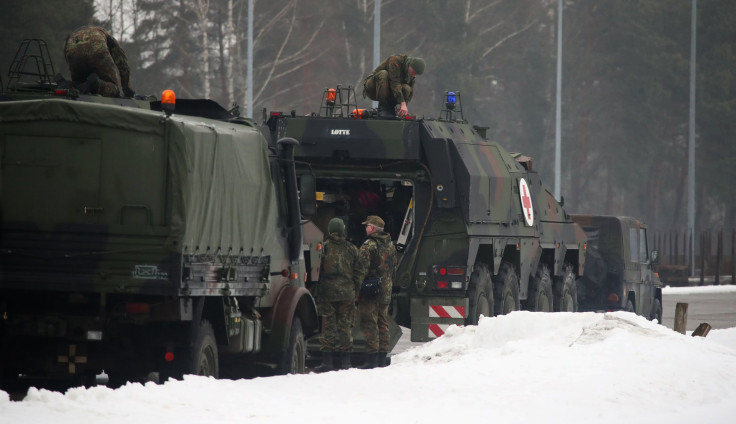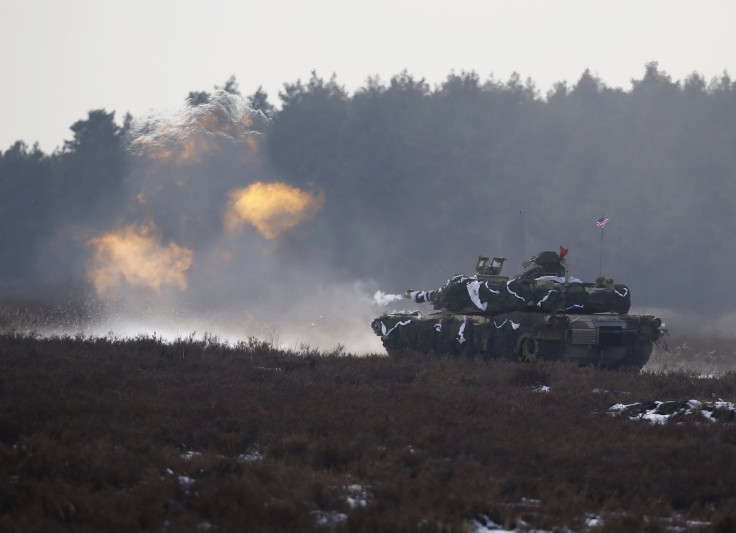Is Russia Going To War? Germany, US Deploy Tanks, Troops To Europe Borders As Moscow Condemns NATO Aggression

Germany sent tanks to Lithuania Tuesday as part of a NATO operation to bolster European military forces along Russia's borders and act as a deterrent against Russian aggression, according to reports.
The ongoing operation would see the mass movement of 200 vehicles, including 30 tanks, as well as 450 soldiers to Lithuania, which shares western and eastern borders with Russia. The mission was scheduled for completion late next month and coincides with Monday's large-scale mobilization of thousands of U.S. soldiers and heavy weaponry to Poland, which also shares an extensive border with Russia.
Last year, NATO agreed on securing greater protection against Russia's military expansion in the region. Tensions between Moscow and a number of European governments have been high since Russia annexed the neighboring former Ukrainian territory of Crimea and began supporting separatist rebels within Ukraine. Washington, by far NATO's biggest financial sponsor, was deeply critical of Russia's foreign policy throughout former President Barack Obama's administration and pushed for a stronger Western military presence along Russia's borders in addition to placing economic sanctions on Moscow.

The NATO buildup, which has represented the international military alliance's biggest military escalation since the Cold War, has focused on Poland and the Baltic states of Estonia, Latvia and Lithuania, all of which expressed fears of neighboring Russia's growing political and military might in the region. Moscow rejected these accusations and has instead charged Washington with attempting to expand its own geopolitical power along Russia's borders.
"We perceive it as a threat. These actions threaten our interests, our security. Especially as it concerns a third party building up its military presence near our borders. It’s not even a European state,” Dmitry Peskov, the spokesperson for Russian President Vladimir Putin, said in a statement earlier this month.
Many European nations have been particularly anxious since the election of President Donald Trump. Trump has called the 28-member NATO "obsolete" and voiced enthusiastic support for Russia on a number of major foreign policy issues, including its military intervention in support of Syrian President Bashar Assad in the country's civil war. While Trump's allies, including Defense Secretary James Mattis, have reassured NATO of Trump's commitment, the Republican leader has publicly considered rolling back the sanctions implemented by his predecessor against Russia if the two nations "get along."
© Copyright IBTimes 2024. All rights reserved.





















